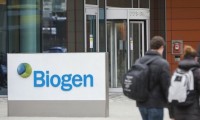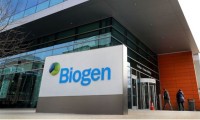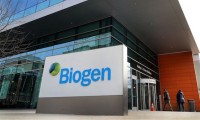-
Sage and Biogen Halt Phase II Study After Novel Drug Shows No Significant Improvement in Treating Essential Tremor
- Source: https://www.pharmexec.com/authors/don-tracy-associate-editor
- 110
- July 27, 2024
-
Neuro Drug Passed Up by Biogen Posts Positive Data for Ionis, Setting Stage for Phase 3 Test
- Source: drugdu
- 75
- July 24, 2024
-
Biogen completes $1.15bn HI-Bio acquisition to expand immunology presence
- Source: drugdu
- 84
- July 5, 2024
-
Ionis and Biogen discontinue experimental ALS drug after Phase I/II flop
- Source: drugdu
- 103
- May 20, 2024
-
Biogen abandons Aduhelm efforts, focuses on Eisai-partnered Leqembi and pipeline drugs
- Source: drugdu
- 185
- February 2, 2024
-
Biogen returns ex-U.S. rights of MS drug Fampyra to Acorda
- Source: drugdu
- 145
- January 15, 2024
-
Biogen’s Aduhelm headache returns as appeals court revives part of investor lawsuit
- Source: drugdu
- 132
- October 14, 2023
-
Biogen Lays Off 113 Reata Employees Weeks After Completing $7B Acquisition
- Source: drugdu
- 221
- October 14, 2023
-
Biogen lays off staffers at newly acquired Reata, with 113 set to lose positions
- Source: drugdu
- 149
- October 13, 2023
-
FDA Approves Sandoz Biosimilar to Biogen’s MS Therapy Tysabri
- Source: drugdu
- 107
- August 29, 2023
your submission has already been received.
OK
Subscribe
Please enter a valid Email address!
Submit
The most relevant industry news & insight will be sent to you every two weeks.













